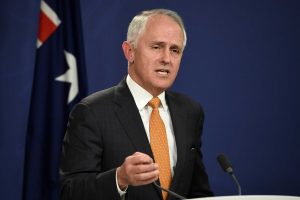Turnbull’s multicultural proclamation largely backed
Multicultural groups have largely approved of the federal government’s recent ‘multicultural statement’, which for the first time cites “integration” as the corner stone of the national identity and social unity.
The statement by Malcolm Turnbull to parliament on March 20 introduced integration as a fundamental principle, along with citizenship and unity.
 For the first time, a multiculturalism statement by a federal government has recognised the impact of terrorism on the social fabric, and listed individual freedoms, including freedom of speech, as core Australian values.
For the first time, a multiculturalism statement by a federal government has recognised the impact of terrorism on the social fabric, and listed individual freedoms, including freedom of speech, as core Australian values.
A statement by Julia Gillard in 2011 focused on access to welfare and services for minorities.
The Turnbull’s Government’s move has been widely backed by ethnic and migrant groups
The Migration Council Australia (MCA) yesterday said it supported the statement “Multicultural Australia: United, Strong, Successful”, calling it an affirmation of the economic and social importance of migrants in shaping Australia.
“We see the statement as a celebration of the role that successive multicultural policies have played in ensuring we are a cohesive, safe and prosperous country,” said MCA Chief Executive Carla Wilshire.
“The affirmation of our settlement framework and the imperative for governments to support newly arrived migrants to become self-reliant and active members of the Australian community is warmly welcomed,” she said.
The Settlement Council of Australia (SCA) welcomed the statement, which included changes in the definition of multiculturalism to a broader policy recognising white Australia and settlement along with migration, ethnic minorities and indigenous Australia.
“As we prepare to celebrate Harmony Day on March 21, it is timely to reflect on the enormous contribution multiculturalism has made to our great country,” said SCA Chair Dewani Bakkum.
“We are proud of our country’s commitment to diversity and the bipartisan support of Australia’s political leaders to maintaining a welcoming, inclusive and harmonious society,” she said.
The Federation of Ethnic Communities Councils (FECCA) gave “cautious” support while arguing against changes to the Racial Discrimination Act on race-hate speech.
“The multicultural statement is another step in our ongoing efforts to maintain and strengthen Australia’s inclusive, prosperous and harmonious multicultural society,” said FECCA Chair Joe Caputo.
He called on the government to announce “tangible” initiatives, including the development of a national language policy.
Race Discrimination Commissioner Dr Tim Soutphomassane said the statement “affirms the strength and success of Australia’s multiculturalism”.
“It is valuable to have an official statement about the meaning of multicultural Australia,” he said.
“While there is strong acceptance of multiculturalism, there is always a need to ensure that we maintain our social cohesion and harmony.
“Our debates about culture, identity and immigration must never undermine our national unity,” Dr Soutphomassane said.
The opposition so far has not endorsed the document but Greens leader Richard Di Natale said the statement reinforces the view that new arrivals should adopt so-called “Australian” values.
“The new multiculturalism statement is an attack on multiculturalism,” he said in a statement.
“The speech is more warning than welcome, with a focus on the risks of terrorism and border security and the need for migrants to embrace Australian values if they are to integrate,” Dr Natale said.
Migrants are warned in the statement that “practices and behaviours that undermine” Australian values and sense of “fair go” have no place in Australia.
The statement cites “justifiable concern” in the Australian community, triggered by “terrorist attacks around the world”.
It says that promoting “acceptance and understanding,” combined with “strong borders and national security,” will help to keep society “safe, cohesive and harmonious”.
The statement identifies Australia’s “shared values” as respect, equality and freedom, and says learning English “is a critical tool for migrant integration”.
But it praises the number of foreign languages spoken in Australia as good for the country’s ability to forge international business links and innovation.
“We are defined not by race, religion or culture, but by shared values of freedom, democracy, the rule of law and equality of opportunity – a ‘fair go’,” Prime Minister Malcolm Turnbull says in a foreword to the statement.
“Australians rightly expect that everyone who is in our country, whether or not they are Australian citizens, obeys Australian laws, supports our democratic process, and treats all people with respect and dignity,” the document says.
The statement also describes Australia’s commitment to freedom as “fundamental”.
“We support freedom of thought, speech, religion, enterprise and association. Maintaining a strong commitment to our common values is in the best interests of the Australia,” the statement says.
Laurie Nowell
AMES Australia Senior Journalist












